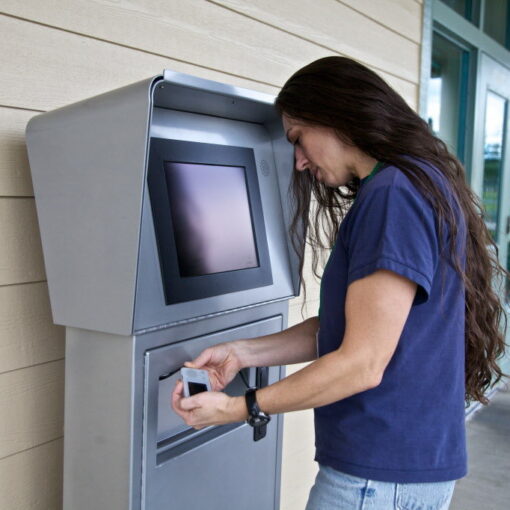![]() This is an interesting article about the failure of a prisoner RFID tracking system trial conducted in an Australian jail. It is unclear from the article what caused the signal interference issues between the prisoner bracelets and the guards’ duress alarm bracelets that led to the decision to drop the trial. However it seems the program had problems from the beginning, so perhaps the main issue was vendor program and technology management related rather than a problem with the RFID technology itself.
This is an interesting article about the failure of a prisoner RFID tracking system trial conducted in an Australian jail. It is unclear from the article what caused the signal interference issues between the prisoner bracelets and the guards’ duress alarm bracelets that led to the decision to drop the trial. However it seems the program had problems from the beginning, so perhaps the main issue was vendor program and technology management related rather than a problem with the RFID technology itself.
The multi-million dollar electronic tagging system for prisoners at the territory’s jail has been quietly dropped.
The high tech system, that electronically monitored the whereabouts of all the prison’s detainees, has been plagued with technical problems throughout the early years of the jail.
The ACT government initially hired contractor NEC in 2008 on a $3.9 million, five-year deal for the ”RFID project”, with the technology company to install and monitor a system for detainees that included a duress alarm system for staff and visitors.
The system installed at the AMC included 540 bracelets, 260 for inmates, 160 for custodial staff and 120 for visitors and other staff, with the system intended as an optional ”secondary security measure” at the centre, one that provided additional tracking capabilities and data collection when criminal activity was taking place in the jail.
But the project was dogged by glitches and security surrounding the program had to be boosted in early 2010 when three of the bracelets went missing.
They were disabled en mass early last year when it was discovered they could interfere with the duress alarms worn by guards, placing the prison staff in danger.
Now Corrections Minister Chris Bourke says the prisoner bracelet component of the project had been abandoned.
”In October 2011, all detainee RFID devices were removed,” Dr Bourke said. ”Staff duress alarm devices remain in place.
”The decision to remove the detainee devices was made due to ongoing problems with the operation of the RFID system, including problems with battery life, which the private contractor has been unable to resolve to ACT Corrective Services’ satisfaction since detainees were first received into the AMC in 2009.”
”The Territory is now in discussion with the provider to finalise the contract whilst ensuring that a staff duress system remains operational. ”Those discussions are at a mature stage.” Dr Bourke said the abandonment of the RFID project meant that security continued to be managed by conventional methods.
”Security of the AMC and detainee management has not been compromised,” the minister said. ”The RFID system has the capacity to enhance prisoner management, but is not the primary mechanism for this function.
”Normal prison operations, as occur in prisons throughout Australia, have been maintaining appropriate custodial standards to date and will continue to do so.”
A Corrective Services spokeswoman said in a statement that NEC were still maintaining the staff duress alarms at the AMC.
”As NEC were unable to commission a system that complied with the contract requirements to the satisfaction of ACT Corrective Services, the contract has now been varied so that the duress alarm system is maintained until a new duress alarm system is procured,” she said.
- Multi-Blockchain System for Inmate Forensics - April 2, 2024
- Blockchain to Secure Attorney-Inmate Privacy for Prison Calls - June 28, 2023
- meshDETECT® Announces Grant of Ninth Patent For Blockchain Wireless Services - August 26, 2022




